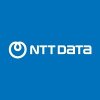
i
Zensar Technologies
Filter interviews by
Zensar Technologies Specialist Testing Interview Questions and Answers
Zensar Technologies Specialist Testing Interview Experiences
1 interview found
I appeared for an interview in Apr 2024.
(1 Question)
- Q1. What is minus query.
- Ans.
A minus query is a type of SQL query that retrieves records from one table that do not have a corresponding record in another table.
Minus query is used to find records in one table that do not exist in another table.
It is similar to the 'EXCEPT' keyword in some SQL databases.
Example: SELECT * FROM table1 MINUS SELECT * FROM table2;
Skills evaluated in this interview
Top trending discussions






Interview questions from similar companies

I applied via Naukri.com and was interviewed in Feb 2021. There were 3 interview rounds.
Interview Questionnaire
1 Question
- Q1. Basic peopletools questions on AE, CI, Peoplecode, File Layout.
Interview Preparation Tips

I applied via Recruitment Consulltant and was interviewed before Aug 2021. There were 6 interview rounds.
Normal aptitude test
Advance aptitude test
Group discussion amongst 7 people
(1 Question)
- Q1. Basic technical questions
It was a managerial round
(1 Question)
- Q1. Final discussion with HR
Interview Preparation Tips
- Basic java
- Basic programming language

I applied via Naukri.com and was interviewed before Sep 2021. There were 2 interview rounds.
(1 Question)
- Q1. Java 8 and spring boot
(1 Question)
- Q1. Java 8 and spring boot Microservices
Interview Preparation Tips

Interview Questionnaire
1 Question
- Q1. Core java

Interview Questionnaire
1 Question
- Q1. About study , general questions and company

I applied via Naukri.com and was interviewed in Nov 2020. There were 3 interview rounds.
Interview Questionnaire
3 Questions
- Q1. About numeric Data types
- Q2. About DB2 Precompilation
- Q3. Null indicator
Interview Preparation Tips

I applied via Company Website and was interviewed in Dec 2020. There were 4 interview rounds.
Interview Questionnaire
4 Questions
- Q1. Basics of Java (Collection, Multi treading, Synchronization, Design Pattern)
- Q2. Spring, Spring Boot
- Q3. Hibernate questions in depth
- Q4. JPA, Architecture of microsevices
Interview Preparation Tips

I applied via LinkedIn and was interviewed in May 2021. There were 3 interview rounds.
Interview Questionnaire
1 Question
- Q1. Basic c# questions, sql, MVC, microservices
Interview Preparation Tips

Software Engineer Interview Questions & Answers
Optum Global Solutionsposted on 16 Sep 2021
I appeared for an interview before Sep 2020.
(2 Questions)
Round duration - 60 Minutes
Round difficulty - Medium
Timing was in the morning around 10 am. This round was conducted on Hackerrank and contained 2 coding questions of easy to medium level which varied for all the students taking the test. There were 20 MCQs from topics like Java, Operating Systems, Data structures, and SQL.
I also gave a test for this company last year during internships. At that time MCQs were based on aptitude and reasoning. Also at that time, there were 2 coding questions and timing was dividing according to sections.
- Q1.
Nth Element Of Modified Fibonacci Series
Given two integers
XandYas the first two numbers of a series, and an integerN, determine the Nth element of the series following the Fibonacci rule:f(x) = f(x... - Ans.
Calculate the Nth element of a modified Fibonacci series given the first two numbers and N, with the result modulo 10^9 + 7.
Implement a function to calculate the Nth element of the series using the Fibonacci rule f(x) = f(x - 1) + f(x - 2)
Return the answer modulo 10^9 + 7 due to the possibility of a very large result
The series starts with the first two numbers X and Y, and the position N in the series
- Q2.
Consonant Counting Problem Statement
Given a string
STRcomprising uppercase and lowercase characters and spaces, your task is to count the number of consonants in the string.A consonant is defined as a...
- Ans.
Count the number of consonants in a given string containing uppercase and lowercase characters and spaces.
Iterate through each character in the string and check if it is a consonant (not a vowel).
Keep a count of the consonants encountered while iterating through the string.
Return the total count of consonants at the end.
(1 Question)
Round duration - 45 Minutes
Round difficulty - Medium
This round was conducted on Cisco WebEx and the interviewer was very friendly. Firstly, we were asked briefly to introduce ourselves. Then he moved on to the CV and asked various questions about the projects, certifications, and internships mentioned. He asked about the implementation of a few features in some of the projects and also about the challenges I faced while doing the project and how I finally overcome the challenge. He also asked about various skills mentioned in the resume.
- Q1.
Merge Two Sorted Linked Lists Problem Statement
You are provided with two sorted linked lists. Your task is to merge them into a single sorted linked list and return the head of the combined linked list.
... - Ans.
Merge two sorted linked lists into a single sorted linked list with constant space complexity and linear time complexity.
Create a dummy node to start the merged list
Compare the values of the two linked lists and append the smaller value to the merged list
Move the pointer of the merged list and the pointer of the smaller value's linked list
Continue this process until one of the linked lists is fully traversed
Append the ...
Round duration - 30 Minutes
Round difficulty - Easy
This round started with my Introduction. Then he moved on to behavioral questions just to get an understanding of how we deal with situations and our thinking process.
Interview Preparation Tips
Tip 1 : Do at least 2 good projects and make an attractive resume mentioning all your skills in the best possible way(Don't include any False commitments)
Tip 2 : Practice easy to medium level coding questions from geeks for geeks or Leetcode.
Tip 3 : Prepare everything mentioned in your resume properly including Java, SQL.
Tip 1 : Include projects and experiences in detail.
Tip 2 : Make an eye-catching resume clearly mentioning all your skills including subjects like data structures, JAVA, SQL, etc. The database is a very important skill if you have its knowledge.
Skills evaluated in this interview
Zensar Technologies Interview FAQs
Tell us how to improve this page.
Zensar Technologies Interviews By Designations
- Zensar Technologies Software Engineer Interview Questions
- Zensar Technologies Senior Software Engineer Interview Questions
- Zensar Technologies Junior Software Engineer Interview Questions
- Zensar Technologies Software Developer Interview Questions
- Zensar Technologies Technical Specialist Interview Questions
- Zensar Technologies Senior Technical Specialist Interview Questions
- Zensar Technologies Senior Software Developer Interview Questions
- Zensar Technologies Java Developer Interview Questions
- Show more
Interview Questions for Popular Designations
- Manual Testing Interview Questions
- Software Testing Engineer Interview Questions
- Qa Automation Testing Engineer Interview Questions
- Senior Software Engineer Testing Interview Questions
- Quality Assurance and Testing Interview Questions
- Testing Engineering Analyst Interview Questions
- Testing & Commissioning Engineer Interview Questions
- Senior QA Engineer -Software Testing Interview Questions
- Show more
Zensar Technologies Specialist Testing Interview Process
based on 1 interview
Interview experience
Interview Questions from Similar Companies
Fast track your campus placements
|
Software Engineer
3.8k
salaries
| ₹2 L/yr - ₹10.2 L/yr |
|
Senior Software Engineer
3.8k
salaries
| ₹6.9 L/yr - ₹26 L/yr |
|
Technical Specialist
1.5k
salaries
| ₹9.8 L/yr - ₹35 L/yr |
|
Softwaretest Engineer
825
salaries
| ₹2.4 L/yr - ₹7.5 L/yr |
|
Senior Technical Specialist
728
salaries
| ₹11.5 L/yr - ₹40.8 L/yr |

DXC Technology

Sutherland Global Services

Optum Global Solutions

FIS
- Home >
- Interviews >
- Zensar Technologies Interview Questions >
- Zensar Technologies Specialist Testing Interview Questions


















